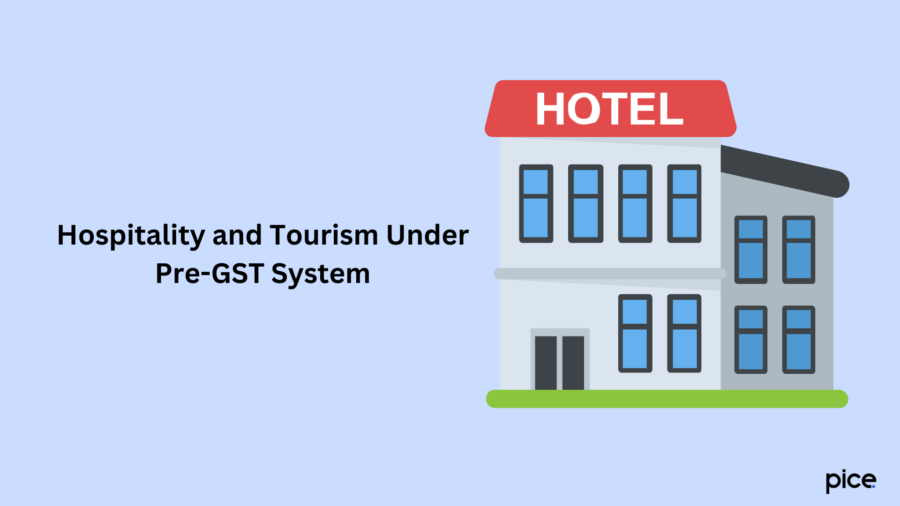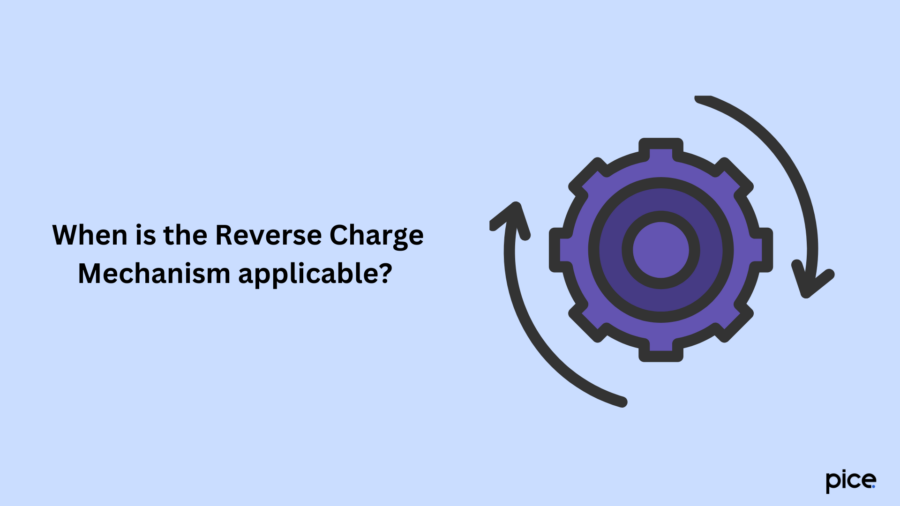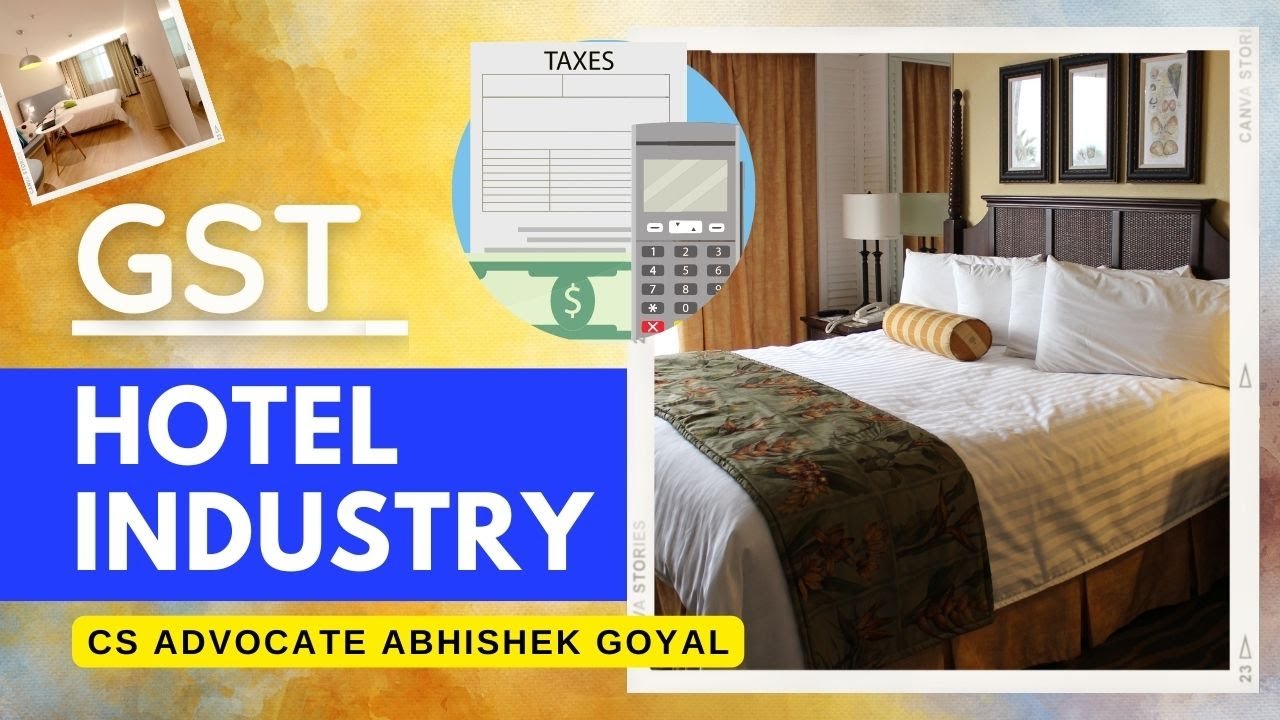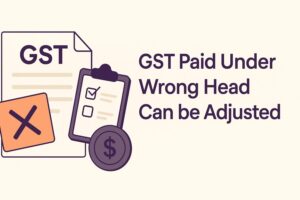Impact of GST on Hospitality Industry and Hotel Rooms
- 19 Nov 24
- 10 mins

Impact of GST on Hospitality Industry and Hotel Rooms
Key Takeaways
- Simplified Taxation: GST replaced complex pre-GST taxes, making compliance easier and reducing costs.
- Tiered Rates: Hotel tariffs are taxed at 0%, 12%, or 18%, encouraging affordable tourism.
- Input Tax Credit: ITC availability lowers operational costs and boosts profitability.
- Luxury Tax Challenges: High GST on luxury services impacts global competitiveness.
- Tourism Growth: GST has streamlined taxes, reduced prices, and enhanced India's appeal to international tourists.
Goods and Services Tax (GST) is an indirect tax applied to the supply of goods and services, which simplifies the tax system by consolidating multiple indirect taxes into a single tax.
The hotel industry can now benefit from standardised tax rates and better utilisation of input tax credits. E-commerce operators and online platforms like Oyo, Zomato, and others have emerged as key components of this sector.
For instance, hotel room tariffs are taxed at varying GST rates based on their price, with higher tariffs attracting higher rates. This uniform tax structure not only helps in attracting more tourists but also promotes growth within the sector.
Let’s discuss the pros and cons and the overall impact of GST on the hospitality industry.
Hospitality and Tourism Under Pre-GST System

Before the implementation of GST, the hospitality, hotel services, and tourism industry in India faced a complex tax regime, including:
- VAT ranging from 12% to 14.5%.
- Luxury tax is applied to certain luxury services and amenities
- For hotels with room tariffs over ₹1,000, the service tax used to be 15%. An abatement of 40% on the tariff value reduced the effective service tax rate to 9%
- Service tax with a 60% discount, effectively 6% on food and beverage services.
- Bundled services like social functions and seminars were taxed with a 30% abatement.
This indirect taxation created an administrative burden on the tourism and hospitality sector. For instance, the cumulative taxes increased the compliance costs for businesses as they faced complex tax compliance and the cascading effect of central taxes and state taxes, which could not offset each other. This resulted in higher service costs.
Hospitality and Tourism Under the GST Regime
GST has standardized tax rates and improved the efficiency of tax credits, lowering final prices for customers and enhancing India's appeal to international tourists. This is expected to boost revenue in the hotel industry, benefiting both businesses and the government.
Under GST, complementary services like breakfast are now included in a bundled service, simplifying the taxation process, unlike the previous VAT regime where they were taxed separately.
Hotel GST rates are now structured according to room tariffs. As of October 1, 2019, the rates are:
- Rooms with tariffs less than ₹1,000 (within the premises of a registered religious place or charitable trust): GST is Nil.
- Rooms with tariffs up to ₹7,500: GST is 12%.
- Rooms with tariffs exceeding ₹7,500: GST is 18%.
Overall, GST has simplified the tax landscape for the Indian hospitality sector, promoting growth and easing tax management for businesses.
Pros of GST
Some of the major advantages of GST are:
- It has reduced the overall tax burden on goods and services and improving tax efficiency, GST has led to lower prices for many products, benefiting consumers
- The process of calculating and processing taxes has become easier and faster for the hospitality sector. This has helped the small and medium entrepreneurs in the industry and also increased employment opportunities.
- Previously, taxation was complex and hard for consumers to understand. The unified tax system has simplified the tax structure, making it easier for end-users to review and comprehend.
- The hospitality industry can take advantage of the tax on input credit availability for hospitality businesses. Hotels can reduce the taxes if they pay on inputs while still paying the output tax, which wasn't possible as central taxes couldn't be set off.
Cons of GST
Here are some of the disadvantages of GST in the Tourism Industry:
- High Luxury Taxes: The tax on luxury hotels and high-end businesses will be expensive for tourists. This has reduced competition in the global luxury tourism market and negatively impacted the MICE (Meetings, Incentives, Conferences, and Exhibitions) segment due to higher accommodation and service costs.
- Complex Guidelines: Even though the GST guidelines are clear, businesses also need to be technically proficient in GST-compliant software.
- Impact on Pricing and Competitiveness: Higher taxes on hotel accommodation services make India less appealing than neighbouring countries with lower tax rates. Varying GST rates and service Prices confuse tourists and travel planners, thay can reduce India's tourism appeal.
- Changes in Compliance: Frequent changes in GST rates and regulations require constant updates and tax compliance, which can be burdensome for businesses, especially smaller ones.
Filing GST returns can be complex and time-consuming, particularly for businesses without dedicated accounting resources, due to the need for detailed documentation and regular submissions.
Transaction Value Per Unit (Rs) Per Day | GST
- Hotel Accommodation Services
Amendments Effective from 18th July, 2022 (47th GST Council Meeting):
- For room rent up to ₹1,000 per day, the GST rate is 12%.
- For hotel room rates between ₹1,001 and ₹7,500 per day, the GST rate is 12%.
- For room rent of ₹7,501 or more per day, the GST rate is 18%.
Previous Amendments:
From 1st July 2017 (14th GST Council Meeting):
- For hotel room rates up to ₹1,000 per day, GST is exempt.
- ₹1,001 and ₹2,499 per day, the GST rate is 12% with full ITC.
- In the case of hotel room rates between ₹2,500 and ₹4,999 per day, the GST rate is 18% with full ITC.
- For room rent of ₹5,000 or more per day, the GST rate is 28% with full ITC.
GST implemented on 37th GST Council Meeting starting 1st October 2019 are:
- Hotel room rates up to ₹1,000 per day, GST is exempt.
- Hotel room rates between ₹1,001 and ₹7,500 per day, the GST rate is 12% with full ITC.
- For room rent of ₹7,501 or more per day, the GST rate is 18% with full ITC.
- Restaurant Industry
Applicable Rate Structure from 15th November 2017 (23rd GST Council Meeting):
- A GST rate of 5% without ITC is applied as rate on restaurant services.
- For food facilities like parcels or takeaways, a 5% GST rate is applicable without ITC.
- The rate on restaurant services in hotels with a room tariff of less than ₹7,500 per day, the GST rate is 5% without ITC.
- The rate on restaurant services in hotels with a room tariff of ₹7,500 or more per day, the GST rate is 18% with full ITC.
- For outdoor catering, the GST rate applicable is 18% with full ITC.
From 1st October 2019 (37th GST Council Meeting):
- For catering at premises with an accommodation tariff of ₹7,501 or more, the applicable GST rate is 5% without ITC.
- For catering at premises with an accommodation tariff of ₹7,501 or more, the GST rate applicable is 18% with ITC.
- Banquet Hall and Catering Services
- For outdoor catering services at non-specified premises, the GST rate is 5% (No ITC).
- For a composite supply of outdoor catering along with renting of premises at non-specified premises, the GST rate is 5% (No ITC)
In banquet hall services, the primary service offered is the leasing of a space for holding an event so the GST varies based on whether services are provided at specified or non-specified premises.
When is the Reverse Charge Mechanism applicable?

The hotel and restaurant industry is exempt from the Reverse Charge Mechanism under Section 9(4) of the CGST Act, 2017, meaning no tax is payable under this provision of service.
As per Section 13 of the CGST Act, 2017, the time of supply of services is determined by the earliest of the following:
- The date of invoice issuance, if issued within the prescribed time period as per Section 31(2), or the date of payment receipt of services, whichever comes earlier;
- The date of provision of service, if the invoice fail to be issued within the designated timeframe, or the date of payment receipt of services, whichever comes earlier; or
- The date when the recipient records the service in their accounts, if neither of the above applies.
Therefore, the time of supply for hotel and restaurant services is:
1. If an invoice is issued:
- The date of invoice issuance or
- The date of provision of service
- The date of recording in the books of accounts.
2. If no invoice is issued:
- The date of receipt of payment or
- The date of provision of service, whichever comes earlier, or
- The date of recording in the books of accounts.
3. For the place of supply, under Section 10(3) of the IGST Act, 2017:
- For lodging services by hotels, inns, guest houses, etc., the place of supply is the location of the immovable property.
- For restaurant, catering, grooming, fitness, beauty, and health services, the place of supply is the location where the services are actually performed.
When Are the Supplier and Recipient in Separate States?
When the supplier and recipient are in separate states, the hotel’s location determines the place of supply. In such cases, Central Government and State Government GST are applied, not IGST. Additionally, the recipient cannot claim ITC on the tax paid, as GST paid in one state is not eligible for ITC in another state. The tax for the supply of hotel or restaurant services to a SEZ unit will be with IGST and not CGST and SGST.
Conclusion
GST has played a vital role in streamlining the tax landscape for the Indian hospitality sector, making it simpler and more efficient for businesses to manage their tax obligations.
As a result, it offered additional opportunities to streamline the tax process. The uniform tax rates and availability of input tax credit benefits have contributed to lower consumer prices and enhanced the sector's growth.
While challenges such as high tax rates on luxury services and complex compliance requirements persist, the overall impact of GST on the hospitality industry has made it more competitive and attractive, enhancing its contribution to the Indian economy.
💡If you want to streamline your payment and make GST payments, consider using the PICE App. Explore the PICE App today and take your export business to new heights



















